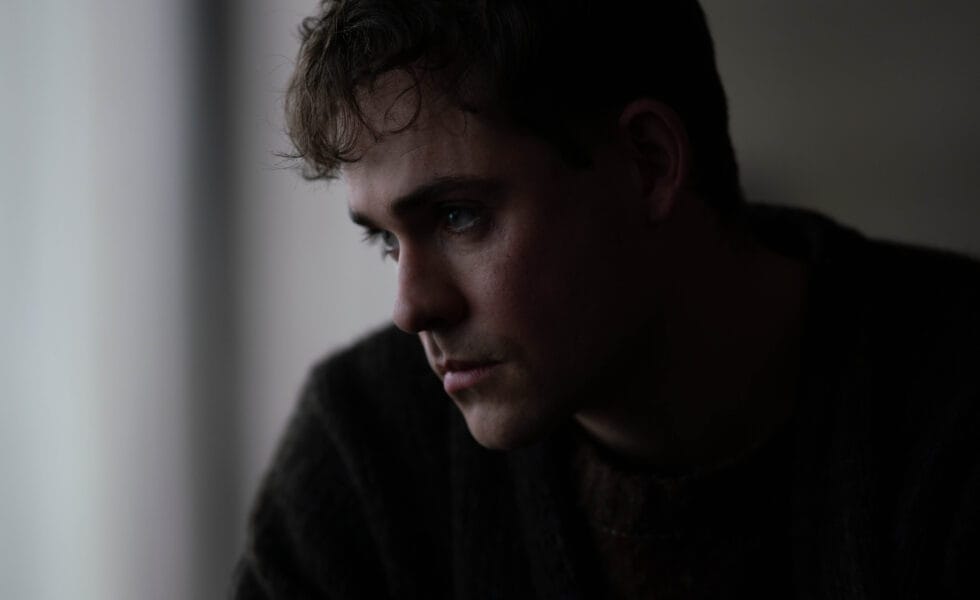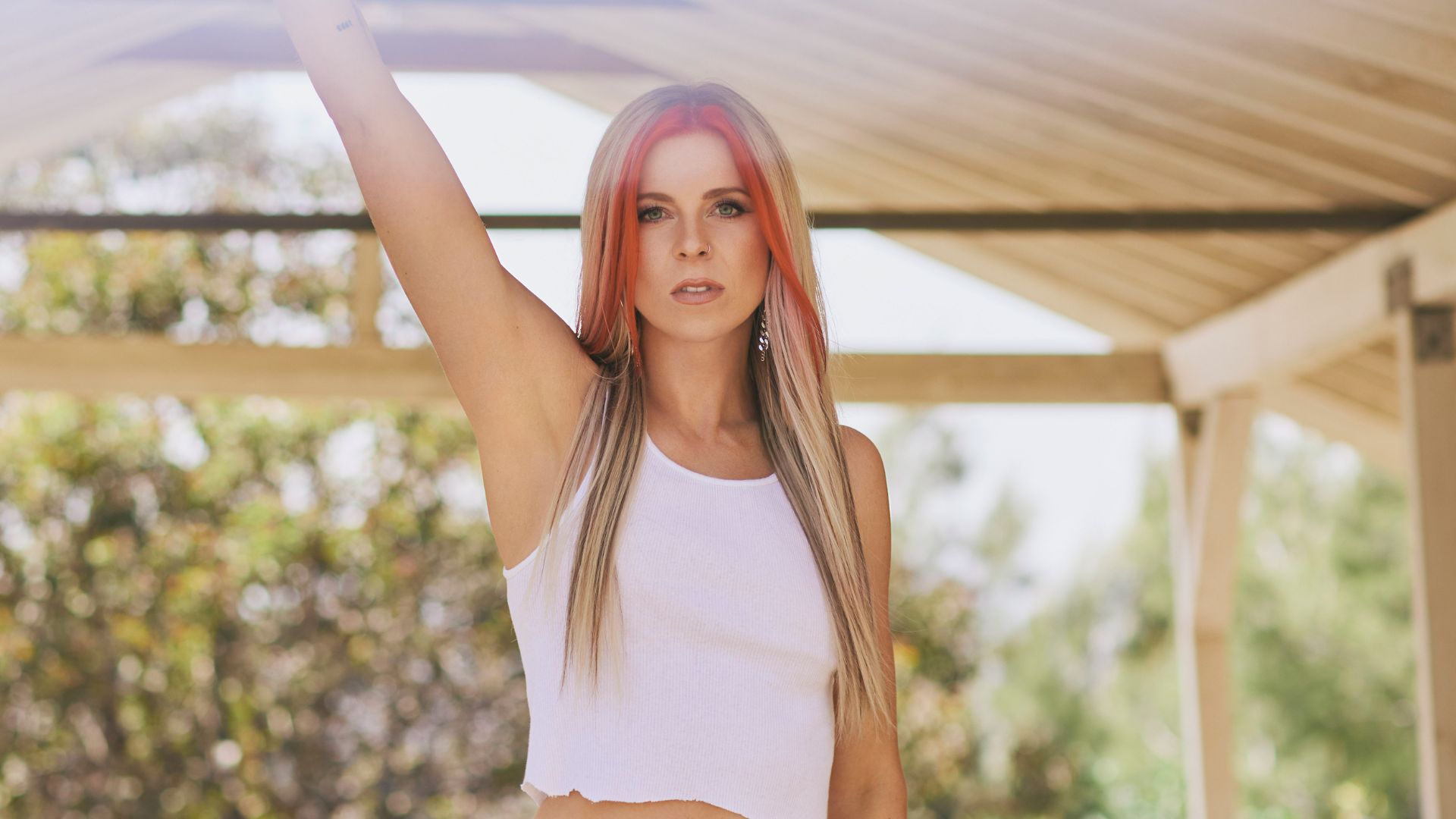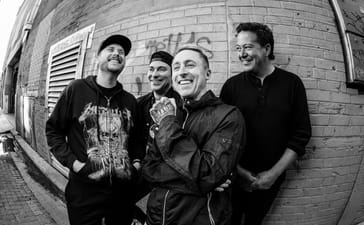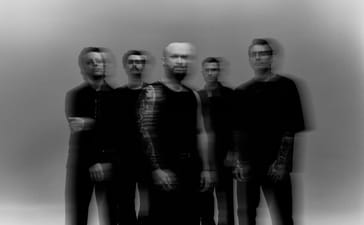Perth-born actor Dacre Montgomery reflects on stepping away from Hollywood’s glare, his haunting new role in Went Up The Hill, and why directing marks the next chapter of his artistic journey.
Flying under the radar when we meet in a Sydney bar, Perth-born actor Dacre Montgomery could not be further from the stereotypical movie star. In recent times, he’s spoken candidly about stepping back from the relentless spotlight that followed his breakout role in Netflix’s Stranger Things, and every move he makes reflects the sensibility of a humble artist who is exclusively committed to his craft.
Uninterested in the superficial lures of Hollywood, Montgomery waited patiently for a project that spoke to him. That project arrived in Samuel Van Grinsven’s Went Up the Hill, where he embodies Jack, a man pulled into a chilling, retraumatising relationship with his estranged mother Elizabeth’s grieving widow, Jill (played by Vicky Krieps). Montgomery and Krieps both perform as Elizabeth as her spirit haunts them in the aftermath of her death, in an unsettling and cathartic testament to their skill in taking viewers to the darkest and most disturbing corners of human emotion.
Catching up with him now is to witness a pivotal moment in his career. As he prepares to direct his own film, Montgomery continues to pave a path defined by earnest creativity, refusing to succumb to the noise and spectacle of his industry.
This interview has been edited and condensed for clarity and length.
—
You took a five-year break before Went Up The Hill. What exactly were you up to?
More than anything, I was just recalibrating. I feel like when Stranger Things came out, and some other work, I just lost my anonymity. I had always wanted to be an actor, but I didn’t ever consider losing my privacy…And I think I freaked out a bit. I love big commercial stuff, but I really got into the industry wanting to do independent arthouse stories and work with auteur filmmakers. And when Stranger Things came out, I feel like I had a lot of people wanting me to do more commercial stuff, which I love. I love big action movies and sci-fi films and stuff like that. But I kind of went, oh shit, I’m gonna get pigeonholed a bit here. So I pulled back.
You wanted to get back to yourself – how is life for you now?
I like living in Australia. I feel like people in Australia treat people who live in the public eye a bit differently, because we all have tall poppy syndrome, so no one really gives a shit. You’re like, “Why do you think you’re better than everyone else? Who cares?” I prefer to leave the bubble that is the film industry, or the entertainment industry, come back and ruminate on what I want to do next, and my next hustle. I draw a lot more from my ambition, being at home in my bubble than being there, competing with 150,000 other actors in LA or wherever else. It’s just not really my thing.
You’ve spoken about your trauma informing your decision to do ‘Went Up The Hill’. You’ve also mentioned that you didn’t speak to Vicky [Krieps, co-star] during filming. Did you share the background of why you chose to do the movie with each other?
So, Vicky’s character has lost a wife. And right before we started filming, Vicky’s boyfriend died in a ski accident in Europe. All she said to me was, “I’m here to address the ghost of my past, of my partner.” And that’s really what her character is doing in the film: addressing the ghost of her past. And I had told her why I was there, which is private and personal, and then we had one or two days to rehearse Elizabeth, which is the character that we play together. And then we went our separate ways.
When we premiered the film at Toronto Film Festival last year, we spoke for the first time in an unencumbered way. Like, in a not, “we’re on a sheep station going crazy and addressing our own demons” way. We watched the movie first, I sat down behind her when the movie started, and it was like the moment for both of us to shed everything. And then we were able to just have a laugh and kind of go, “Wow, what a wild experience.” During the filming, we didn’t talk unless it was about the mechanics of the scene and where the camera was, you know, all of those things you talk about when you’re blocking a scene with another actor.
Was there any levity on set? How were you doing during that time?
If you talk to my partner, she’ll just tell you that I was a mess the entire shoot when she was there. I probably didn’t deal with it super well because basically, where we were in New Zealand, right, we’re shooting in this house, but then we were all living on a sheep station as like a cluster of homes up in the mountains. So I work all day and then leave and go back to this tiny house in the woods with a little fireplace, having nightmares all night or not sleeping, and then get picked up at 4am to go back to work for two months. You can imagine anyone’s headspace is…it’s very cyclical in that way of just going through the trauma, unpacking the trauma. So, no, I don’t think there was much light in anyone on set because it was very intense, but I think that aided it. Anything that’s a singular location, like a play, you want to be actually on location or on a film set or in a film studio. You want to be actually out there, so the crew and all the actors can feel that intensity. It’s so valuable because you’re actually there. It’s like when they shot The Shining – everyone talks about Shelley Duvall going crazy because they were actually up in that lodge in Colorado going crazy.
Is there an expectation when you do a project about how you want the audience to view it?
That’s a really good question. I think there always is, just for your own ego. It’s like anything – you’re going to write a piece, and there’s an expectation of how you want people to perceive it because you want them to find it fascinating, interesting, or that they haven’t heard something like this from Dacre or from that film. But I’ve learned as I’ve gone along to try and expel that. Because the more you work to an expectation, the more your work becomes contrived in a way it wouldn’t if you weren’t working to an expectation. Part of my process as a creative is trying to relinquish that and let it go, which has been tough, because everyone has this self-consciousness, ego, all of that. But this was really good because I didn’t give a shit. I didn’t give a shit what I looked like, I didn’t give a shit about anything other than giving the most real and authentic performance of these two characters that I possibly could.
What is exciting to you about the future, in terms of projects that you’re looking at? What are you looking for?
I took another two years off after Went Up the Hill, and I did this Gus Van Sant film in January with Al Pacino, Bill Skarsgård, and Colman Domingo, which was great. Dead Man’s Wire, it’s another film that’s set in one room, the whole film, with Bill and I. He takes me hostage. That was an amazing experience, just to learn from such great actors, but also Gus Van Sant, who directed Good Will Hunting and My Own Private Idaho. It was great to learn from him because he worked completely differently again than Baz Luhrmann, who I worked with, and Samuel, who directed Went Up the Hill.
And then really, for the last nine years, I’ve been wanting to direct a film, and that’s taken nine years to find a script, get producers, yada, yada. So we’re now finally, hopefully, going to direct that. I’m directing, starring in it, and producing, and for me, that was another test of how far I can push myself to learn new skills.
My industry’s changing a lot – as I’m sure yours is – and a lot of other people’s, with AI and other things. For me, I want to diversify and develop new skills so I can do other things. I’ve always wanted to direct. It’s really, really hard to get a first film off the ground and convince people why they should invest money in you. It’s like any startup, right? Why would you invest millions in someone who’s never directed anything before? Are you invested in the story? Are you invested in a financial return? What’s your angle? For me, it’s been years and years to get to this point, and now I just want to drop off the map for the next two years, make the film, edit it, and follow it through to release in a really intense and focused way.
You mentioned AI. What’s your opinion on that?
I’m the least conservative person of all time. I’m really progressive. Human beings have always been challenged by new things every decade, century, thousands of years – whether it’s picking up a log and hitting someone with it, or the stuff in 2001: A Space Odyssey. It keeps reflecting itself.
AI is great because it’s a new challenge. How do we fit in this world? How does my industry change when people take likenesses and all that? I said this to someone the other day: a lot of people are scared of change, period– not just AI. People fear change. I think I’m scared too, but I embrace it: what could come out of it? I always feel I’ll be able to express myself in my art, even if AI eventually takes my likeness or takes over the world, as long as my circle is safe and humanity isn’t ruined. We can grow from it.
Like, your children, my children’s children – they’ll be the product of that. There’ll be people living on Mars.
—
Went Up The Hill is out now in Australian cinemas.







